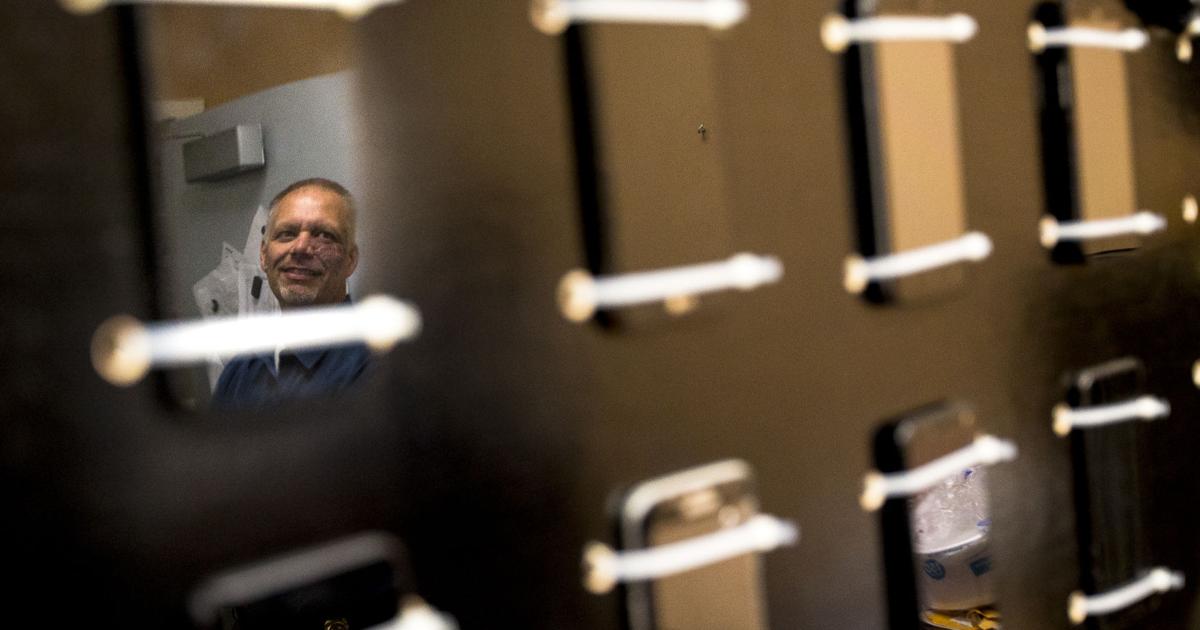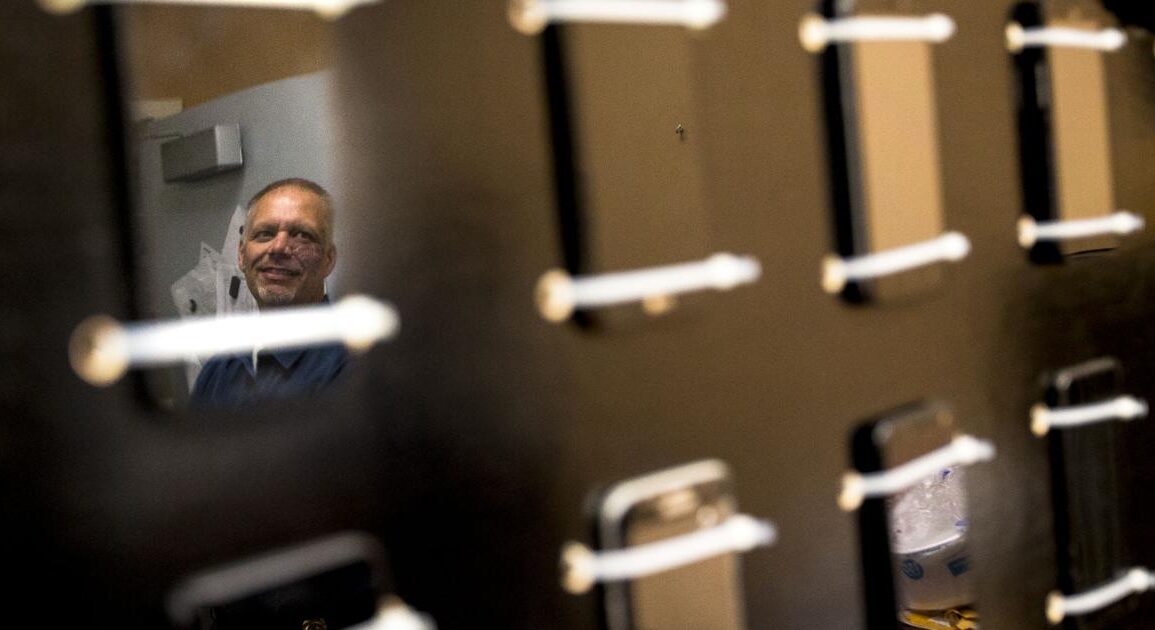
COLUMBIA — For years, South Carolina corrections officials have lamented federal laws they claim prohibit them from limiting state prisoners’ use of cellphones, allowing inmates to commit crimes ranging from assassination attempts to drug trafficking while behind bars.
A solution to the problem might finally be in sight, if state lawmakers are willing to foot the bill.
The S.C. Department of Corrections, announced the agency’s intent to ask for a “large budget request” to expand a pilot program that allowed them to make a sizable dent in contraband cellphones at one of its largest prisons, Bryan Stirling, the agency’s director, said Oct. 10 during a meeting of the state Legislature’s Joint Bond Review Committee.
The kicker is that the deactivation technology is expensive, likely costing in the “multiple millions of dollars,” according to a corrections spokesperson.
Since 2018, Lee Correctional Institution in Bishopville has been the only state prison with technology that can detect the IMEI, or International Mobile Equipment Identity, of each cellphone that is operational in the facility.
While the technology was initially designed to “dampen” certain phone signals — which corrections officials say was ineffective — newly imposed regulations by the Federal Communications Commission enacted in 2021 allow the technology to be used to allow individual cellphone providers to disable the IMEI number, rendering the phone useless.
The system costs approximately $522,000 per year, according to publicly provided estimates when the program was rolled out in 2018. And while it has recently proven effective at deactivating cellphones, the technology was never great at disrupting phone signals.
“It was designed to only allow certain phones to work and dampen the signal for others,” Chrysti Shain, a DOC spokesperson, told The Post and Courier. “… We didn’t expand it to other prisons because it didn’t really work very well for its stated purpose.”
Being able to deactivate phones, Stirling said, would likely be a game-changer for the state and well worth the cost.
In recent years, law enforcement officials have lamented the proliferation of drones they claim criminals have deployed over prisons across the state to deliver contraband cellphones. Corrections officials claim inmates use those cellphones to orchestrate drug trafficking operations on the outside. Attorney General Alan Wilson, a Republican, has made eliminating the use of cellphones in the state’s jails and prisons a mission over the past year, actively appealing to Congress for any kind of mechanism to allow state law enforcement officials to more easily find and shut down those devices.
The issue is an old one. In 2010, Lee County-based contraband officer Robert Johnson was shot six times in the chest by a hitman hired from inside the prison. Johnson claimed the attempt on his life was in retaliation to his work disrupting their drug trafficking operation. The shooting left injuries that persist to this day.
“I’m here to tell you there’s no recovery of this type of shooting,” Johnson told lawmakers during the Oct. 10 hearing in Columbia. “I’m here to encourage you to give the Department of Corrections as much help as possible so that no one, absolutely no one, goes through what I’ve gone through in the last 13 years.”
It’s not for a lack of trying.
Since the passage of the Communications Act of 1934, states have been prevented from using technology to “jam” radio frequencies, including those used by cellphones. Though the FCC announced changes to allow states to disable cellphones in certain areas back in 2021, regulations were slow in coming. In July, South Carolina became the first state to receive a license to deploy the technology.
The state Department of Corrections was quick to use it.
Within months of approval by the FCC, Stirling said the department initiated an effort at the state’s high-security prison in Lee County to seize cellphones. The new regulations allowed them to directly work with cellphone providers to remotely locate and deactivate mobile devices operating within the facility, he said.
The program has proven highly effective so far. According to Sterling, Lee County prison officials deactivated some 790 illegal cellphones inside the facility since the pilot program launched July 26.
Officials now want to expand the program to all of its 21 facilities statewide. Corrections officials claim this would be the first program of its kind in the United States.
Exactly how much it would cost to acquire the technology to expand the program is still unknown. Corrections officials continue to negotiate with cellphone companies, an agency spokesperson told The Post and Courier.
This post was originally published on this site be sure to check out more of their content.







